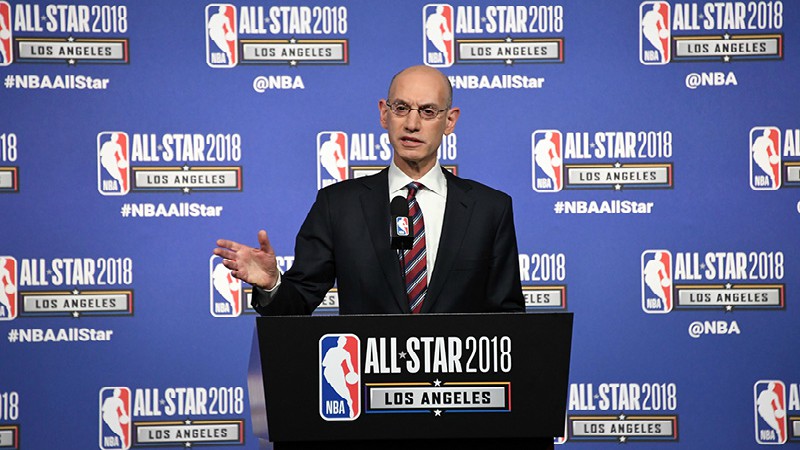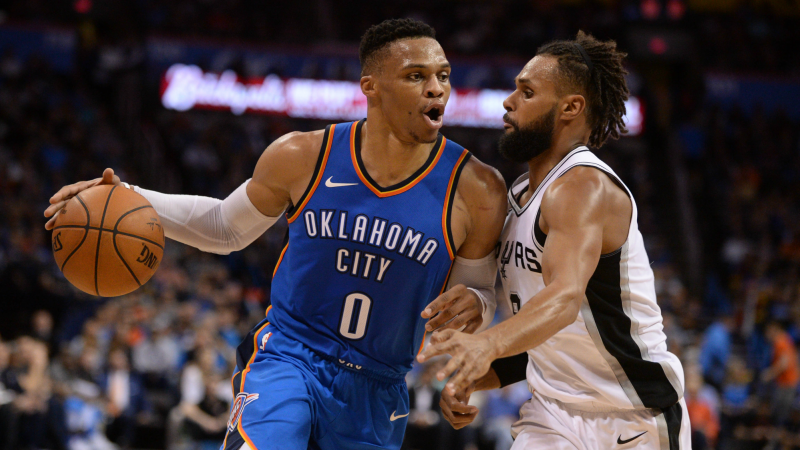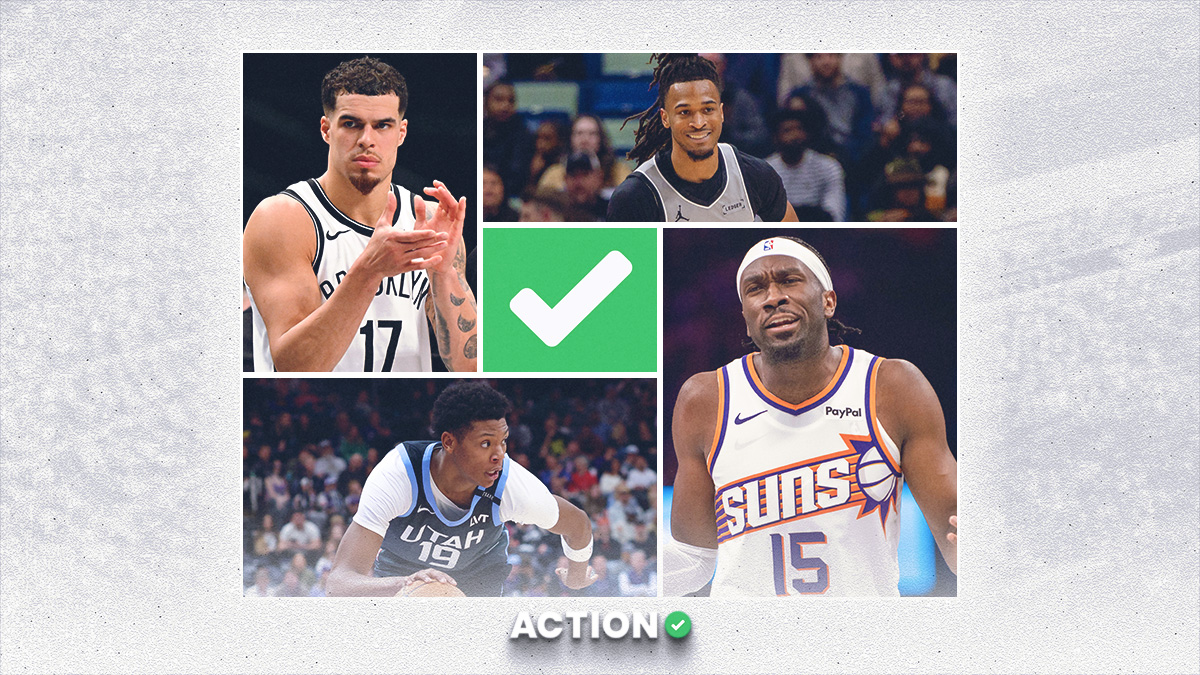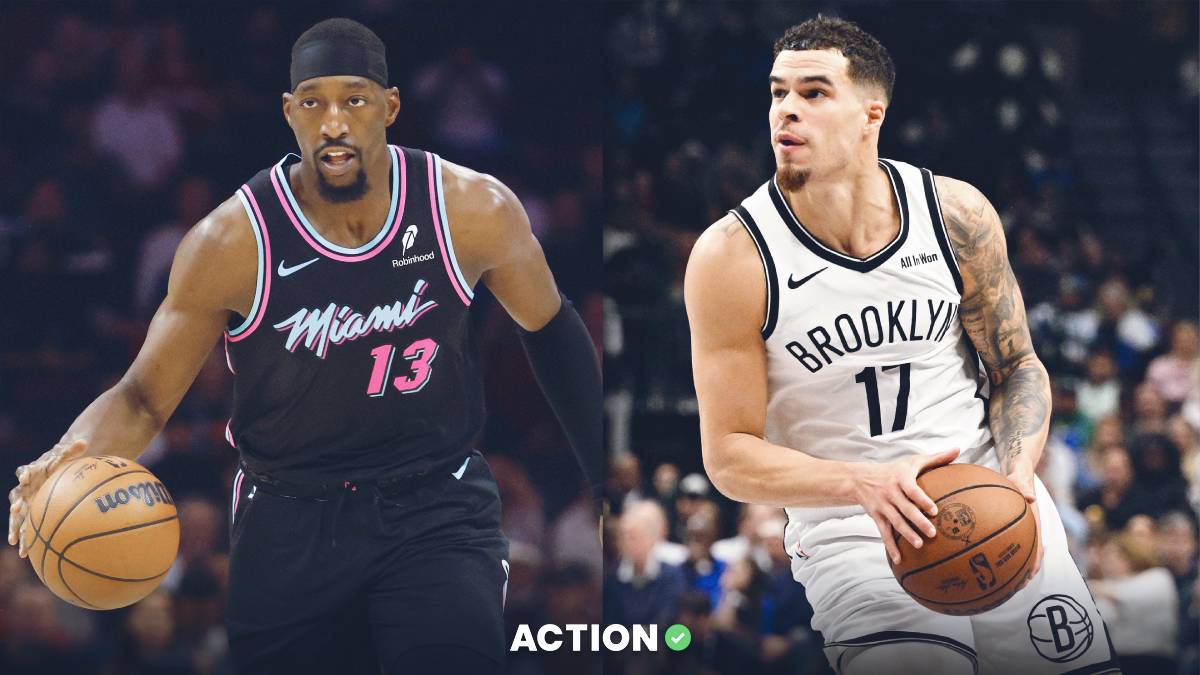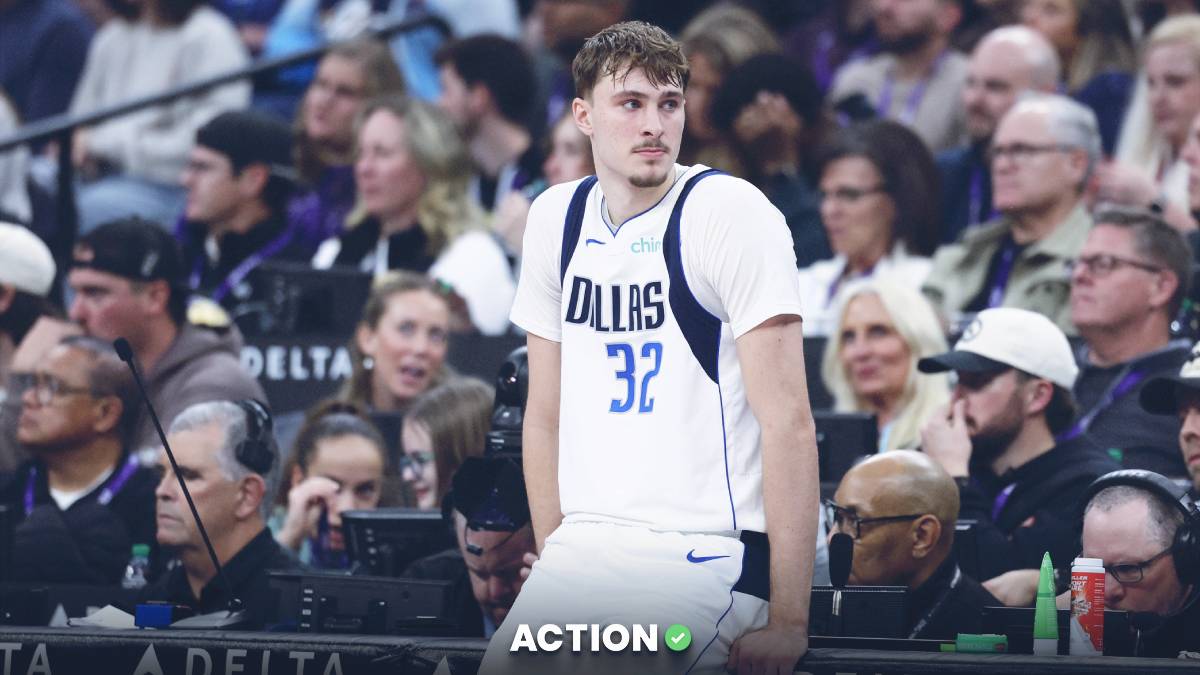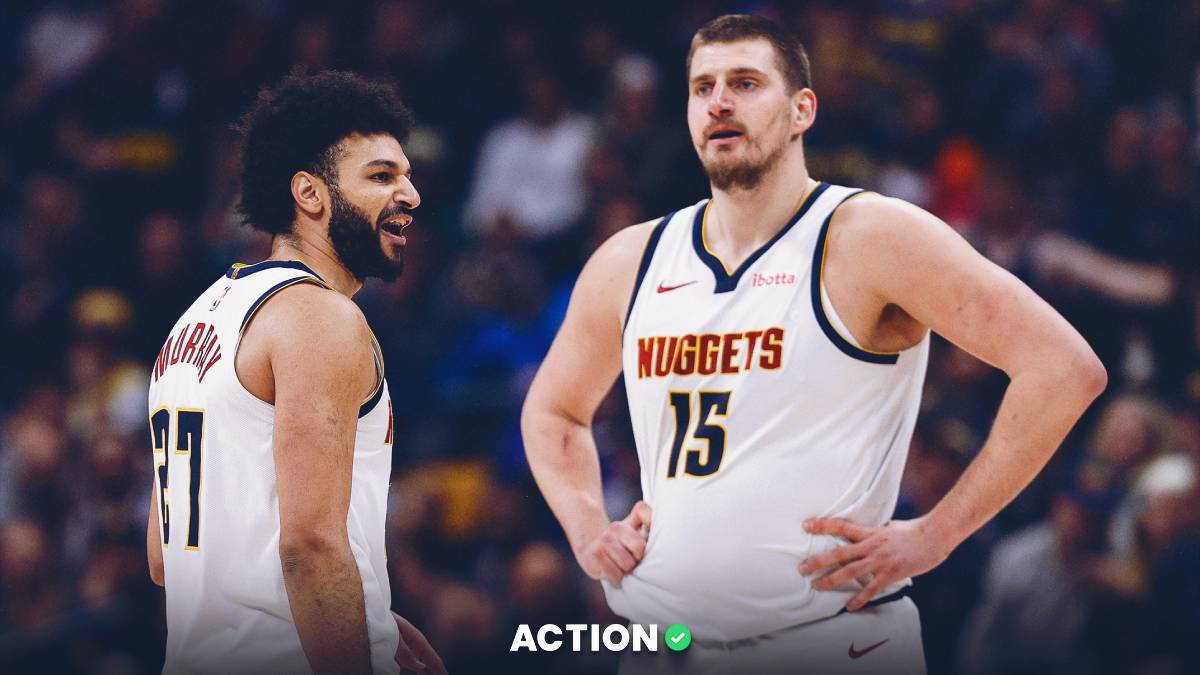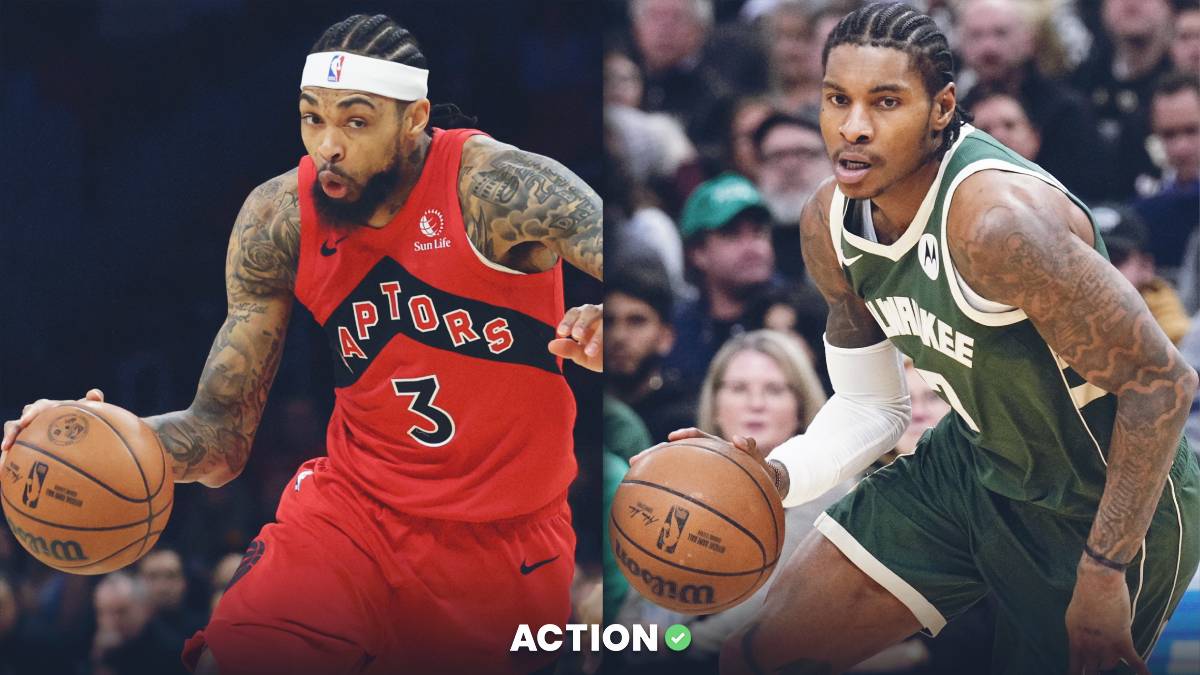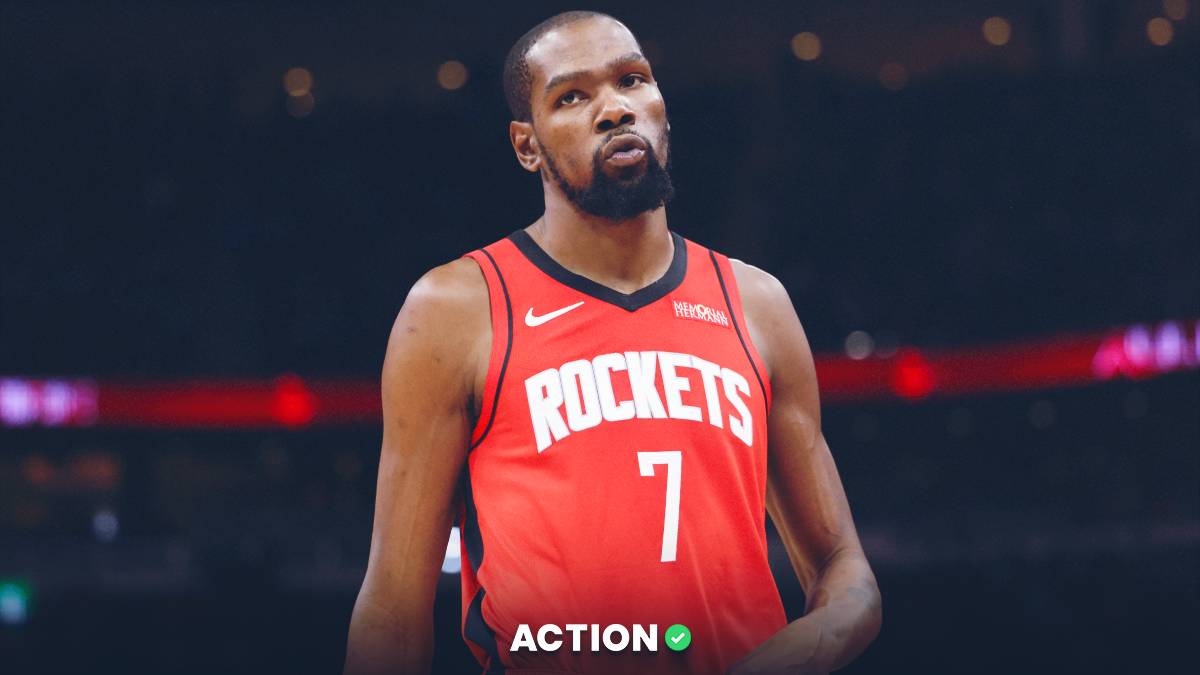The NBA is looking seriously at re-evaluating its conference alignment for the postseason. It only took about three decades of the Western Conference constantly having better teams miss the NBA playoffs, but there seems to be real movement.
There are all sorts of conversations about how to accomplish this, of course. A play-in tournament has a lot of backers. Several NBA executives told The Action Network this month that the one thing they would do to improve the league is add some sort of one-and-done element to the playoffs to improve drama and add an unpredictable nature.
WHY A TOURNAMENT IS A BAD IDEA
For starters, basketball's weird. It's why in an 82-game season, the elite teams lose to tanking squads. It makes the NCAA Tournament wild because when you put two groups of children with poor fundamentals on a floor for 40 minutes, anything can happen. But you don't want the Bulls or Grizzlies getting hot for a night to knock off a team that might actually provide a threat in a series. It's just not worth it. The NBA is about building toward something, and teams that have gotten a small random measure of success tend to follow that up with terrible decision making.
The NBA Playoffs are special, and a marketable product, because of the schemes and adjustments that come about in a seven-game series, not to mention the constant demand, game by game, day by day, for superstars to rise to the occasion. You don't want a real team that could pull off an actual upset of a 7-seed going down because Dennis Schröder had a game. Shrinking the tournament down to a few teams might not be bad, but look at the East this year. The risk of Detroit or Charlotte getting in over Giannis Antetokounmpo, no matter how mediocre the Bucks have been recently, just isn't worth it.
SO WHAT THEN?
The 16 teams, regardless of conference idea. For starters, here's a look at what those matchups would have been last week:
(1) Rockets vs. (16) Heat
(8) Pelicans vs. (9) Spurs
(4) Celtics vs. (13) Jazz
(5) Blazers vs. (12) Pacers
(2) Warriors vs. (15) Nuggets
(7) Thunder vs. (10) Sixers
(3) Raptors vs. (14) Wizards
(6) Cavaliers vs. (11) Wolves
How amazing is this? Miami's hand-off 3-point barrage vs. the Rockets' ISO nightmare. The Celtics — who took Gordon Hayward — going to Utah to take on Donovan Mitchell and Rudy Gobert? Brad Stevens vs. Quin Snyder in an offensive rock fight! Nate McMillan goes back to Portland with Domantas Sabonis, and we get Victor Oladipo vs. Damian Lillard.
Russell Westbrook vs. Joel Embiid in a seven-game series! End. Of. Story!
These matchups are fascinating.
So why won't it happen? The league continues to have three big concerns. The big, public, obvious one, is the travel. You have East teams going west, West teams going east, and that's a lot of mileage on NBA bodies who are already worn down over the course of the season.
The second is a little more selfish, but it's important: TV. The league has to fill certain time-zone elements. If you had an instance where every team was on the West Coast, you're looking at starting the first game at 5 p.m. on the West Coast or starting the second game so late that the East Coast completely misses it (and it misses most of it now).
Now, there are probably ways around this. You will still get a great crowd in Portland or Utah at 5 p.m. PT or 6 p.m. MT. If you just give the major metro cities (read: L.A. and San Francisco/Oakland) the late game, you should be fine. Any of the Central Time Zone Western Conference teams could easily host it, as a 7 p.m. start is standard for them. But it's a factor.
The third is patently and blatantly obvious, but no one really talks about it openly. The East doesn't want to lose playoff spots. It makes sense. You have a real chance of getting those two home playoff gates and the playoff-revenue share if you're in the East. The bar is higher this year, but most years, simply getting to 40 wins means you're in. The East doesn't want to lose that.
I'd suggest a playoff payoff. If you finish top eight in your conference, you get a playoff share, split with the teams that made it in over you. If the team that actually gets in wants more, it needs to have a better record. Meanwhile, removing that backdoor from the playoffs might actually incentivize those teams to be actually good rather than just shuffling along.
So what about the travel? Well, I have an idea.
THE FAVORITE-CHOICE SCHEDULE SOLUTION
The idea is simple. The league used the 2-3-2 format for years in the NBA Finals before switching back to 2-2-1-1-1 to address owner concerns about Game 5 being on the road, which could potentially result in the favored team being in another city for up to eight days at a time.
However, the first and second rounds are on truncated schedules. It's tighter, it won't mean as much now. But if a team is traveling only a short distance — say Boston to New York, or Houston to San Antonio — a 2-3-2 makes no sense.
So instead here's what you do. You book an extra day before for all the arenas in play, to allow for conflicts, and you give the higher-seeded teams choice. They can go 2-3-2 if they feel confident in winning and want to conserve travel, or they can go 2-2-1-1-1 if they know the series will go long and want to guarantee Game 5 at home.
Let's say you're the Boston Celtics facing the Utah Jazz. You're short-handed with an injured Kyrie Irving out alongside maybe Marcus Smart and, of course, Hayward. You have to fly all the way from the Eastern seaboard to the mountains to face Utah for Games 3 and 4.
That flight, according to TravelMath.com takes four hours and 51 minutes. That's roughly an hour more than their longest potential conference matchup, a 3-hour, 51-minute flight to Miami. A 25% increase in flight time is, in fact, quite a bit of a change.
But consider this. If a Boston-Miami series goes to six games in the current setup, which seems very possible, the Celtics would take four flights (to Miami for Games 3 and 4, back to Boston for 5, back to Miami for 6, then back home).
That comes out to 15.4 hours of just flight time. That doesn't factor airport travel or taxiing time. *
A Celtics-Jazz matchup in a 2-3-2 format that goes six games, on the other hand, would require just two flights for Boston. One to Utah for Games 3 through 5, and one back home for Game 6. That would mean just 9.4 hours of flight time. If Brad Stevens looks at the Jazz and says "Nope, we have to have Game 5 at home," they can still opt for the 2-2-1-1-1.
Let's think of it from the Cavs' perspective. The Cavs face the Wolves in the first round under the current matchups, which is just one hour, 43 minutes of flight time. They know they can beat Minnesota in five, but the flight's short enough they can afford the 2-2-1-1-1. In the second round, they'd face Toronto or Washington, neither of which is a long trip, and both are potential matchups as-is.
A second-round matchup of Portland-Boston tops out somewhere between 4 hours, 50 minutes, and 5 hours, 16 minutes. That's a haul. But again, if Boston opts for that 2-3-2 format, the Celtics can limit that, relative to a longer series with an Eastern Conference opponent otherwise.
For those asking "what about the lower seed?"
Win more games, and you can choose these things. To the victor go the spoils. If you're a 15-seed, you deserve to have a tougher schedule. We accept these things all the time, like how the higher seeds get closer appearances in the NCAA Tournament. Is it rough that if you're Portland, you're looking at 15 hours of travel vs. Boston? Sure. But consider this.
The below figures are with Portland as the lower seed against various teams from the Eastern and Western conferences, and include the trip home for Portland at the conclusion of a seven-game series. You can throw six-game series in with the seven-game series as well.
So a five-game series between Miami and Portland would have 24 hours of travel time. That's an insane amount, even over two weeks.
However, look at most of these. A five-game Blazers-Heat series means just one more hour of travel (and one less trip) in 2-3-2 than a five-game Wolves series in 2-2-1-1-1. Most first-round series end in five or six games. But in the 2-2-1-1-1 format, that adds two extra trips for the lower seed. A Blazers-Celtics seven-game series in 2-3-2 has two fewer trips and three fewer hours than a Rockets-Blazers first-round series.
And that's just for the lower seed. The higher seed obviously gets one fewer trip on the five-game setup and two fewer in the seven-game setup.
What we see at the end of this analysis is that the 2-3-2 format could fundamentally prevent much of the concerns teams and the league have for going to a best-16 format, but it comes with the bearing of team responsibility. Choose 2-3-2, lose that Game 5, and you'll always wonder what if you had played Game 5 at home. Go 2-2-1-1-1 to ensure that Game 5, run into a weather issue that delays a flight and you'll ask why you didn't save yourself that extra coast-to-coast trip.
Teams don't want that responsibility. The required flexibility for ensuring arena dates could also be a hassle. There are reasons not to go for it, but the payoff — a more enjoyable, exciting, better-balanced playoffs — is worth all of those concerns.
This idea has been floated to the league office, according to a source, but that it's been shot down as "gimmicky." I struggle with how a tournament involving teams under-.500 would be less gimmicky than this, or how it really pales in comparison to the legitimacy of establishing the future of the league through a Ping-Pong ball machine. I think the concerns are legitimate, but the league needs to at least consider it.
Finally, there's the regular-season schedule concern. The idea goes that if you go to a best-16 format, you have to adjust the regular-season schedule, which would be a headache. I'm here to tell you: no you don't. Don't let perfect be the enemy of good. The current structure enables some small rivalries, limits travel and prevents a headache. It would still be unbalanced, because if one conference is weaker than the other, you see inflation on one side vs. the other. However, this isn't uncommon in sports. In the NFL, you play one division from the other conference, your own division twice, then a smattering of other games. That schedule is not balanced at all.
There's just no reason to go down a rabbit hole of trying to fix something when in the end, the structure can remain the same. If the league wants to give up the money to go to 58 games and you play everyone twice, then sure. But that's not happening.
This idea presents the best way to get to 16-teams without sacrificing the integrity of the playoffs, which, hey, you're still going to have first-round imbalance, but that's normal in a valid playoff format.
THE PICK-YOUR-POISON ADDENDUM
There's push as well for something the D-League tried for a few seasons, which is that the higher seeds get to pick their opponent. Then, if Boston didn't want to take Portland, the Celtics could choose Washington or another team closer to home.
The problem here is I think teams would hate that more than travel. Picking a team is a sign of disrespect. If you're a top seed, the No. 1 thing you want from the first round is speed. You want it over with so you can rest up for the second round and beyond. Telling a team "We think you're the easiest opponent" is going to drag another level of effort out. There's also a resistance to disrespect. Remember, this is the same league where some of the players didn't want to televise the All-Star draft for how it would make players feel.
You want to go to a format where the Warriors say "we're taking Denver because we know we can sweep them," which is what any selection would say? I don't see that one happening.
The fans deserve the best playoffs possible. The best playoffs demand the best teams. This year has seen better balance between the conferences and still, better teams in the West will be excluded. It's time the league made this jump, and allowing schedule flexibility answers the most concerns about it.
Photo: Kirby Lee, USA Today


